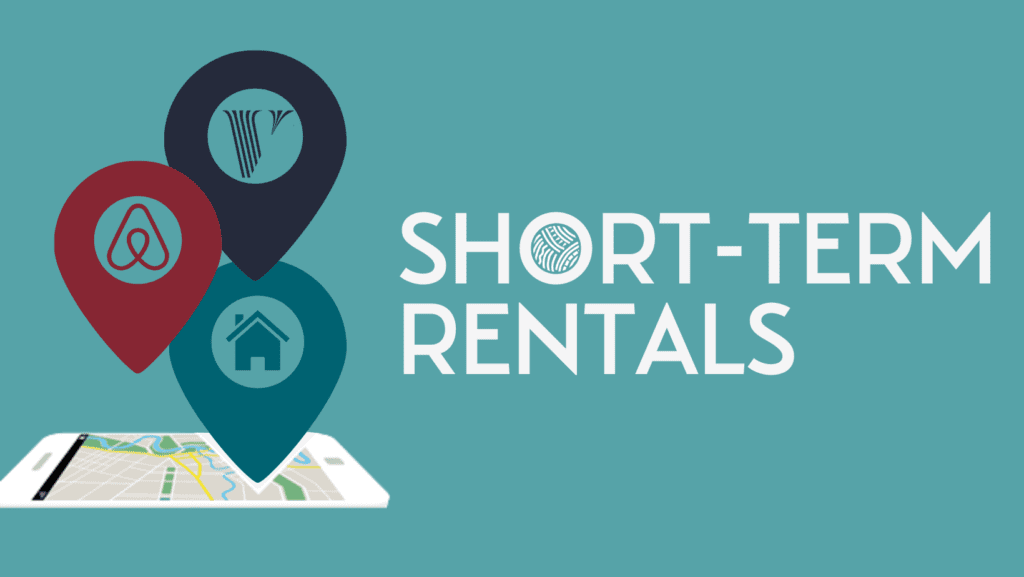The guest experience in short-term rentals is not just about providing a place to sleep; it’s about creating an emotional journey that guides guests from initial curiosity to ultimate satisfaction. One of the most influential factors that determine how your property is perceived is the positive-to-negative scale. This concept is rooted in human psychology, which dictates that negative experiences have a far more significant impact on our emotions and decision-making than positive ones.
When managing a short-term rental, your goal is to tip the scale heavily in favor of positive experiences. However, understanding how small negative interactions can accumulate to have a large impact on guest satisfaction is crucial for providing the best possible stay and ensuring repeat bookings. Here’s a deeper look at how the positive-to-negative scale works and why it’s essential to your rental’s success.
What Is the Positive-to-Negative Scale?
The positive-to-negative scale is essentially the balance of experiences and emotions a guest encounters during their stay. From the very first moment they interact with your listing to the time they check out, every element contributes to this mental scale. These experiences aren’t just about what is presented on the surface, like clean sheets or a well-stocked kitchen. It’s about the overall emotional and psychological impact of everything they encounter during their stay.
The Positive Side
Positive interactions, though often small, compound to create an overall sense of satisfaction and delight. Think of the small touches: a personalized welcome note, extra amenities like a bottle of wine, or a well-thought-out guidebook to the local area. These little gestures make guests feel special, comfortable, and cared for. They confirm that the host is attentive and that the guest made the right choice by booking your property.
The Negative Side
On the other hand, negative experiences, no matter how seemingly insignificant, can disproportionately weigh down the guest’s perception of their stay. Imagine arriving to a door that sticks, a shower with weak water pressure, or towels that feel rough and thin. While any one of these might seem like a minor inconvenience, each one adds up over the course of a stay, leading guests to focus more on problems than on what’s going well.
Example: The Ripple Effect of Negative Experiences
Let’s consider a scenario that highlights how a single issue can set off a chain reaction of negative perceptions, even if it’s addressed quickly.
The Situation: A Broken Showerhead
Imagine a guest arrives at your property, tired after a long journey, looking forward to a refreshing shower. Upon turning on the water, they discover the showerhead is broken, producing only a trickle of water. Now, this is a problem that can easily be fixed. You quickly call your plumber, and they show up within an hour to replace the showerhead. Your cleaners are notified to return and address any issues immediately.
However, the damage has already been done. The guest is left feeling frustrated and inconvenienced. Even if the issue is fixed within an hour, the negative impact on their experience persists. Here’s why:
- Initial Frustration:
The guest’s first interaction with the property is a negative one. They’ve started their stay with a problem—one that could have been avoided if the showerhead was functioning properly. This immediate frustration creates a negative first impression, and the guest is now mentally primed to notice other issues. - Impact on Guest Expectations:
A broken showerhead signals to the guest that the property may not be as well-maintained as they hoped. Even if the shower is fixed, they’re now going to scrutinize other details in the property more closely. They might wonder if other items (like the oven, air conditioning, or bed frame) are in a similar state of disrepair. - Lingering Doubts:
Even if the problem is resolved quickly, the guest’s peace of mind has already been disrupted. They’ll remember the inconvenience of having to deal with the issue, and that negative experience will linger. The next time they use the shower, they may be hyper-aware of any other small issues that could crop up. - Dissatisfaction Amplifies the Small Things:
The negative feeling from the broken showerhead amplifies any other minor inconveniences. Perhaps they notice that the towels are thinner than they expected or the bed isn’t as comfortable as it looked in the photos. These small issues, which might have been overlooked in a positive, relaxed state, now become irritants. - Final Impression:
Even if the issue was resolved efficiently, the guest’s final impression is clouded by the initial negative experience. Their overall rating of the property will likely be lower, and the small inconveniences they faced during the stay may dominate their memory of the visit.
Why It’s Too Late to Fix the Damage
In the example above, even though you addressed the problem quickly by sending the plumber and the cleaners back to fix things, the damage to the guest’s experience has already been done. Here’s why:
- First Impressions Are Hard to Shake
The first experience a guest has with your property often sets the tone for the rest of their stay. When that first experience is negative, it becomes difficult for the mind to shift back to a positive frame. The guest will carry the initial frustration throughout their stay, making it harder to appreciate the other positive aspects of your property. - Psychological Impact of Negative Events
As mentioned earlier, human brains are more wired to remember and respond to negative experiences. The broken showerhead, for example, will linger in the guest’s mind, overshadowing all other details. Their emotional response to the inconvenience doesn’t disappear just because the issue is resolved. They may feel that their time was wasted, or worse, that their comfort was compromised. - The Accumulation of Negative Perceptions
Even when one issue is addressed, the guest’s mind may start accumulating other small problems, real or perceived. This is especially true if the guest has already had a negative experience. The mind becomes hyper-aware of other potential issues, leading the guest to focus on anything that doesn’t meet their expectations. - Damage to Trust
Trust is one of the most important aspects of any guest-host relationship. When a guest experiences a problem with the property, they may feel that their trust has been violated. Even with quick action to resolve the issue, the trust between guest and host may be damaged. The guest may begin to wonder whether other aspects of the property were overlooked or whether the host will be responsive to any further issues.
How to Prevent the Negative-to-Positive Shift
To minimize the risk of small issues snowballing into major disappointments, focus on proactive prevention and attention to detail:
- Pre-Arrival Checks:
Regularly inspect the property before each guest arrives to ensure everything is in working order. This includes checking appliances, plumbing, lighting, and basic maintenance. Preventing problems from occurring in the first place reduces the chances of negative first impressions. - Clear Communication:
From the moment a guest books, set clear expectations. If something unexpected happens, such as a delayed check-in or an issue with the property, let your guest know in advance. Proactive communication shows guests that you care about their experience and are willing to solve problems before they arise. - Immediate Resolution:
While the damage may have already been done, addressing issues swiftly is still essential. Having a reliable team for repairs, maintenance, and cleaning allows you to solve problems quickly, even if the guest has already experienced some frustration. However, it’s crucial to remember that fixing the problem is only part of the solution; managing the guest’s emotional response is just as important.
By understanding the positive-to-negative scale and proactively managing both expectations and experiences, you can create a stay that consistently exceeds guest expectations.
Why the Negative Side Weighs So Much More Heavily
Psychological Impact of Negative Experiences
Human brains are wired to respond more acutely to negative experiences than to positive ones. This phenomenon is often referred to as negativity bias, which means that negative events or details register more strongly than positive ones of equal intensity. A guest may forget about the comfort of their bed, but they’ll remember a loud noise or a broken air conditioning unit, often far more vividly.
- Memory Retention:
Our brains tend to remember negative experiences because they signal potential danger or discomfort. In the context of short-term rentals, a guest will likely remember the time they had to wait for a plumbing issue to be resolved, even if everything else was perfect. This memory could linger and overshadow the other positive aspects of the stay. - Increased Attention to Detail:
Negative experiences cause an emotional response, and the brain tends to become hyper-focused on potential issues once something goes wrong. A broken appliance, a noisy neighbor, or a stain on the couch shifts the brain’s focus to a “problem-solving” mode. The guest may start scrutinizing everything around them to see what else might be wrong, even if the property is otherwise pristine. - The Emotional Amplification of Small Problems:
A single broken towel rack may seem insignificant in isolation, but when combined with other minor issues (e.g., a stained pillowcase, a difficult-to-use coffee maker), it amplifies the guest’s frustration. When guests feel as though they are continually encountering small inconveniences, their overall mood can sour, making it harder to appreciate the positive aspects of their stay. Removing unnecessary charges like the Airbnb cleaning fee is another step you can take to reduce friction and increase the perception of value.
How the Positive-to-Negative Scale Works in Practice
Let’s break down some examples of how the positive-to-negative scale plays out in a typical short-term rental experience:
- First Impressions Matter
Your guest’s first interaction with your property is typically through the listing, whether it’s through a booking platform like Airbnb or directly through your website. The quality of the photos, the accuracy of the description, and the initial communication set the tone for their entire experience. If the listing feels misleading or the photos don’t match the reality, the guest might start their stay with an expectation gap. Improving the general view impressions of your Airbnb listing can help align expectations from the start and strengthen the emotional impact of your listing—well before the guest arrives. - The Check-In Experience
Imagine your guest arrives at your property only to find a confusing or complicated check-in process. Maybe the instructions aren’t clear, or they have trouble accessing the keys. This small inconvenience, when paired with tiredness from travel, can sour the mood before they even step inside. The guest’s mind immediately shifts to “What else could go wrong?” which starts to outweigh the anticipation of their stay. - The “Small” Problems Compound
Once inside, things may appear fine at first—until the guest encounters small problems. A low water pressure in the shower, a lightbulb that flickers, or an uncomfortable couch can all detract from the overall comfort. Individually, these issues may not seem significant, but when added together, they create a sense of neglect. The more small inconveniences guests encounter, the more they begin to focus on what’s going wrong, undermining the positives like a welcoming atmosphere or beautiful decor. - A Big Problem: The Tipping Point
Now imagine a larger problem, such as a broken showerhead or an uncomfortably noisy environment. A major issue like this tips the scale heavily into the negative territory. Guests are likely to fixate on the problem, letting it overshadow the positives, no matter how well the rest of the property is maintained. Guests will remember the broken shower and may feel disappointed by the lack of immediate resolution. No matter how luxurious your linens or amenities may be, these won’t compensate for an uncomfortable or inconvenient experience.
The Ripple Effect: Why Fixing Issues May Not Be Enough
One key aspect of the positive-to-negative scale is that negative experiences don’t simply cancel each other out with fixes. Once a negative event or inconvenience happens, the emotional impact lingers, even if the problem is addressed quickly. Here’s why:
- Cognitive Dissonance and Unresolved Tension
Even if a negative issue is resolved, the discomfort it caused doesn’t disappear immediately. The brain needs time to process and release the tension caused by the disruption. If a guest encounters a problem—no matter how big or small—then it’s often impossible for them to entirely erase that frustration, even with a quick fix. - Loss of Trust and Comfort
Trust is fragile, and once a guest’s expectations have been violated, it’s challenging to regain their full confidence. A plumbing issue, for example, may make a guest question the overall quality of your property, even if other issues are resolved swiftly. They may be left wondering what other issues could crop up during their stay, and this lingering sense of uncertainty has a lasting negative impact. - The Final Impression
How you resolve issues is important, but often, it’s the final impression that matters most. A guest’s last moments in the property—whether it’s their final walkthrough before check-out or the ease of departure—leave an imprint on their overall experience. If they’ve experienced frustration throughout their stay, even a smooth and efficient check-out process may not be enough to overcome their dissatisfaction.
How to Tip the Scale Toward the Positive
Understanding the positive-to-negative scale is key to crafting an exceptional guest experience. Here are some ways to tip the scale in your favor:
- Proactive Communication
From the moment a guest books, keep communication clear, friendly, and proactive. Provide all necessary information upfront, from check-in details to property amenities. Reassuring your guests about their expectations and responding promptly to any queries helps them feel confident about their decision to book with you. - Exceed Expectations with Small Touches
Little things go a long way. A personalized welcome message, offering an extra set of linens or towels, or having local treats waiting for guests can create an overwhelmingly positive impression. Small touches show you care about their comfort and set the tone for a memorable stay. - Quick Issue Resolution
Address any issues promptly and with professionalism. The faster you can fix a problem—whether it’s a broken appliance or a plumbing issue—the less negative impact it will have. Make sure you have reliable service providers on call for quick fixes. However, remember that even with a resolution, the initial inconvenience may still affect the guest’s overall perception, so prevention is always better. - Consistency Across the Property
Ensure that the quality of your property is consistent across all areas. If the bathroom is spotless and the kitchen is fully stocked but the living room has chipped furniture or broken blinds, your guest’s attention will be drawn to the discrepancies. Consistency in cleanliness, maintenance, and attention to detail makes the entire experience feel seamless.
Conclusion: Managing Guest Experience Through the Positive-to-Negative Scale
The positive-to-negative scale is a psychological force that shapes your guest’s experience in powerful ways. The key takeaway is that it’s not just about minimizing negative experiences—it’s about intentionally crafting an experience where the positives consistently outweigh the negatives. By understanding how small inconveniences accumulate and how big issues can overshadow smaller positives, you can design an experience that maximizes satisfaction and encourages repeat guests.




